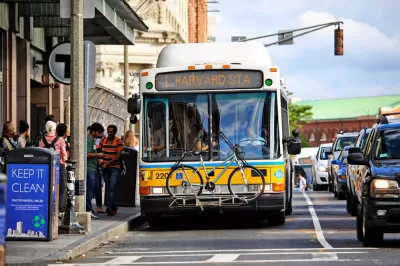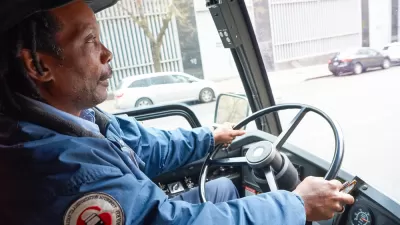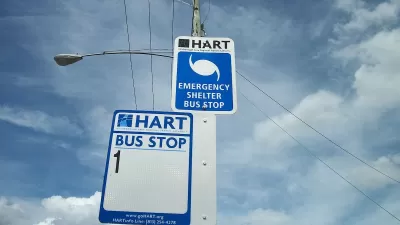The city's new mayor wants to see fare-free transit funded as a public good throughout the Boston region.

If its new mayor gets her way, Boston could soon have fare-free bus travel for everyone, reports Joanna Slater. "Michelle Wu, the city’s newly elected mayor, has made free public transportation a rallying cry and a personal mission, calling it a tool for social justice and tackling climate change."
"Advocates for free transportation say it increases ridership, discourages car use and provides greater access to jobs and education, particularly for lower-income residents and communities of color." Some proponents of free transit say eliminating fares also reduces operating costs. "Noah Berger, the [Merrimack Valley Regional Transit Authority]’s administrator, said that for every dollar the system collected in fares, 76 cents went to the costs of collecting those fares — from fixing and maintaining fare boxes to physically counting cash."
"Fare-free pilots can be more complex than they appear, said Steven Poftak, general manager of the MBTA. When fares disappear for a bus, they must also be eliminated for transit services for people with disabilities in the same area, generating more demand for such rides." Meanwhile, in Boston's early fare-free pilot, "About two-thirds of the passengers said the free bus service didn’t save them any money, either because they use a monthly transit pass or because they transfer from the bus to a train and must still pay a fare for their journey."
But Wu wants to see fare-free transit spread throughout the greater Boston region. "In the long run, she said, public transportation is 'a public good and should be funded that way.'"
FULL STORY: Are free buses a tool for social justice? Boston wants to find out.

Trump Administration Could Effectively End Housing Voucher Program
Federal officials are eyeing major cuts to the Section 8 program that helps millions of low-income households pay rent.

Planetizen Federal Action Tracker
A weekly monitor of how Trump’s orders and actions are impacting planners and planning in America.

Ken Jennings Launches Transit Web Series
The Jeopardy champ wants you to ride public transit.

Rebuilding Smarter: How LA County Is Guiding Fire-Ravaged Communities Toward Resilience
Los Angeles County is leading a coordinated effort to help fire-impacted communities rebuild with resilience by providing recovery resources, promoting fire-wise design, and aligning reconstruction with broader sustainability and climate goals.

When Borders Blur: Regional Collaboration in Action
As regional challenges outgrow city boundaries, “When Borders Blur” explores how cross-jurisdictional collaboration can drive smarter, more resilient urban planning, sharing real-world lessons from thriving partnerships across North America.

Philadelphia Is Expanding its Network of Roundabouts
Roundabouts are widely shown to decrease traffic speed, reduce congestion, and improve efficiency.
Urban Design for Planners 1: Software Tools
This six-course series explores essential urban design concepts using open source software and equips planners with the tools they need to participate fully in the urban design process.
Planning for Universal Design
Learn the tools for implementing Universal Design in planning regulations.
Ada County Highway District
Clanton & Associates, Inc.
Jessamine County Fiscal Court
Institute for Housing and Urban Development Studies (IHS)
City of Grandview
Harvard GSD Executive Education
Toledo-Lucas County Plan Commissions
Salt Lake City
NYU Wagner Graduate School of Public Service





























